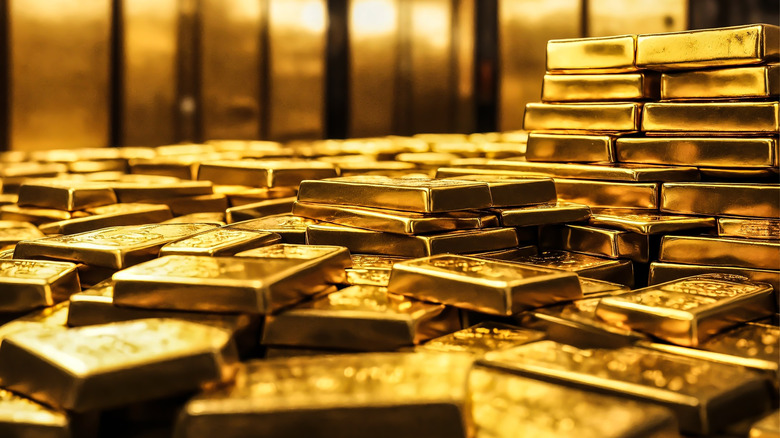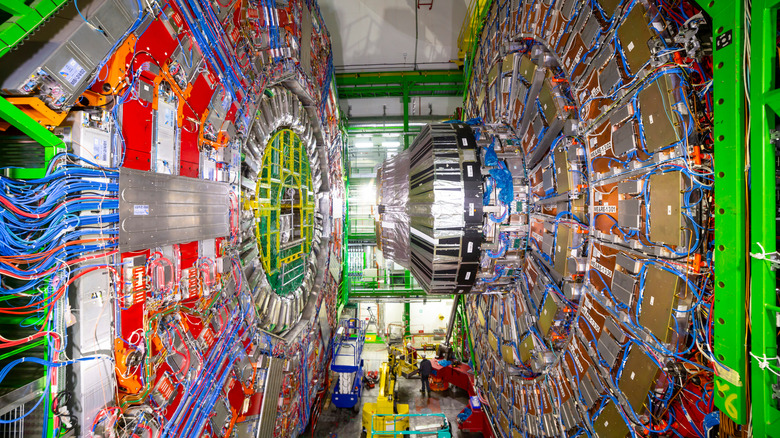Here's Why It's So Hard To Make More Gold
Centuries ago, in Medieval times, alchemists toiled to transform lead into gold, but nobody ever managed to achieve this coveted feat. With all that humanity has uncovered about science since that time, we can now see exactly why alchemists failed in their efforts to make gold. We have even figured out what it really takes to turn lead into gold. We just can't make much of it.
Alchemists were never able to turn lead into gold because they didn't yet understand how elements work. The periodic table of the elements wasn't developed until the 1800s, and without this understanding, alchemists were trying to make elements interact in ways they never naturally could. Alchemists believed that all substances in the world were imbued with a universal spirit, and that all metals were interconnected. They believed that precious materials like gold were just a more purified state of common metals like lead, and that common metals could be turned into precious ones by a process called transmutation.
Today, we know that transmutation of lead into gold was never a realistic goal to pursue because the atomic structure of gold is different from that of lead, or any other element for that matter. To turn one into the other would require the power to change atoms themselves. Alchemists in Medieval times possessed nothing like that power. However, today, we do have the power to transform elements. The problem is, doing so is really, really, really expensive, and it returns almost zero bang for your buck.
We can only make a few atoms of gold at a time
In order to transform elements on an atomic level, you need a particle accelerator, and there's none better for the job than the Large Hadron Collider (LHC) at CERN in Switzerland. The LHC can accelerate particles to more than 99.999% the speed of light, resulting in collisions that can change elements on the atomic level. Particle accelerators can even create antimatter, compared to which a precious metal like gold seems downright basic.
One reason that alchemists focused on turning lead into gold as opposed to any other common metal is that lead and gold have similar densities, and thus appeared to be closely related. There is a half-truth in this, as it turns out that gold and lead are only three spaces from each other on the atomic table, with gold having 79 protons and lead having 82. Thus, in order to turn lead into gold, you need to collide lead atoms with enough force to knock three of their protons off.
In May, 2025, a team at CERN confirmed that they had managed to produce gold from lead nuclei in the LHC. However, the process is anything but efficient. Most of the collisions result in thallium and mercury, which are one and two protons off from lead. Over three years, they managed to create 89 billion nuclei of gold, which only equates to 29 trillionths of a gram. Even worse, the gold nuclei obliterate themselves in around one microsecond.

